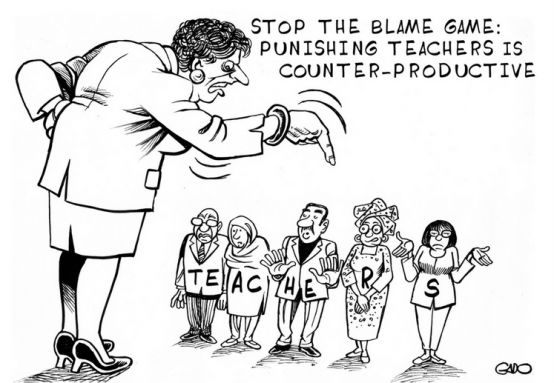For quite a long time, the expression “accountability” basically alluded, in educational policy circles, to government controls expected to guarantee quality. That is on account of most youngsters who go to their appointed region schools, which are not straightforwardly answerable to parents and work as accepted restraining infrastructures. Many UK Academic Writing Service provides detailed information on this topic.
A particular element of restraining infrastructures is the absence of responsibility. Since district schools are not considered specifically responsible to guardians, some policymakers have endeavored to force responsibility through top-down government regulations. However many years of endeavors to direct locale schools into quality have had little impact. Unfortunately, an excessive number of policymakers have still come to see centralized government controls as synonymous with “accountability” instead of a sub-par other option to guide accountability to guardians, and have along these lines looked to force comparative directions on decision programs. Be that as it may, directions intended for a monopoly system are wrong for a market-based system.

In a market-based framework, makers are considered straightforwardly responsible to customers for the results. The administration sets certain tenets against extortion or well-being and security measures, however, the shoppers, at last, choose whether an item or service meets their needs. Considering education providers specifically responsible to guardians makes a criticism circle that does not exist in more incorporated, top-down frameworks like the district schools. As social researcher Yuval Levin has contended, this empowers the framework to “channel social learning from the base up as opposed to… force specialized information starting from the top.” This directing is expert “through a procedure of experimentation, assessment, and advancement.” Many Academic Writing Services provide papers on this topic.
On the off chance that we need an instruction framework that makes noteworthy upgrades in quality after some time, education providers must be allowed to improve and guardians must be allowed to pick the suppliers that work best for their own youngsters. This framework advances after some time on the grounds that higher-quality suppliers will pull in more guardians and lower-quality suppliers will confront strain to either enhance or close down.
The Price of Technocratic Accountability
The technocratic way to deal with responsibility requires that all schools are judged by uniform metrics, in this manner the technocrats depend intensely (to be sure, solely) on government-sanctioned test scores, especially in math and language arts. The technocratic reformers need to utilize these scores to set a base standard, signifying “failing to meet expectations” schools would be barred from getting voucher funds– or, on account of sanction schools, be closed down entirely– even against the will of guardians who still need to select their children there.
Let us get straight to the point about what is in question. The technocratic approach would dispose of a family’s slightest terrible instructive option, leaving kids to worsen off “for their own greatness.” For instance, parents may have picked a private or sanction school that did not perform well on the state’s government-sanctioned test generally speaking, yet the school may have given a more secure condition than the nearby locale school. Or on the other hand maybe the school was prevailing at its central goal to help the most in danger understudies, yet the state’s uniform “accountability” framework neglected to consider its main goal. The harm done to youngsters who lose the chance to go to schools that their parents accept are superior to anything the option is inestimable.
We ought to likewise be practical about the unintended results of over-dependence on test scores. Albeit state-administered tests can furnish parents with helpful data about their child’s scholastic execution, utilizing them to force uniform principles that so barely characterize “quality” makes unreasonable motivating forces that restricted the educational programs, smother advancement, and can head out quality schools from taking an interest in the decision program.
Academic Writing Services mostly provide academic papers on this topic with a detailed argument. These Academic Helpers provide extensive research on this topic.